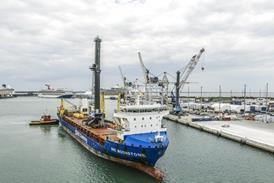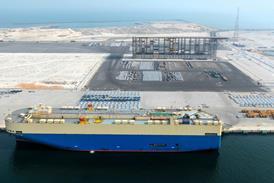Ukraine continues to prove resilient in the face of Russia’s invasion. The latter is coming to terms with strong sanctions and international companies cutting ties.
The rouble, which fell by 30 percent at one point on Monday morning, regained around a third of its lost ground after Russia’s central bank more than doubled interest rates from 9.5 percent to 20 percent in the hopes that higher deposits could offset the risks of inflation and currency depreciation.
Energy majors are cutting ties with the country. BP, Equinor and Shell are among the list of companies that announced their termination of connections to the Russian oil industry. For Shell, this involves exiting its joint ventures with Russia-headquartered Gazprom and related entities; this includes its 27.5 percent stake in the Sakhalin-II LNG facility, its 50 percent stake in the Salym petroleum development, as well as the Gydan energy venture. Shell also intends to end its involvement in the Nord Stream 2 pipeline project. TotalEnergies, meanwhile, said it would no longer provide capital for new projects in Russia.
Shipping lines, too, are withdrawing from Russia. Ocean Network Express (ONE) suspended bookings to and from the country, as has MSC Mediterranean Shipping Company with the exception of essential goods such as food, medical equipment and humanitarian goods that will continue to be accepted and screened for delivery. Similar announcements have been made by Hapag-Lloyd and CMA CGM, and Maersk will reportedly join the growing list in the coming days.
Airfreight is feeling more immediate affects. Airspace closures are disrupting connections between Asia and Europe. All-cargo airline Air Bridge Cargo (ABC), part of Volga-Dnepr Group, reportedly withdrew the majority of its fleet from Europe after EU and UK bans took hold.
But the impacts on the heavy lift end of the sector will likely be more severe as the fate of the world’s fleet of AN-124s is at stake. Controlled by Ukraine’s Antonov and Russia’s Volga-Dnepr, it is implausible to think there will be no long-term implications.
Antonov is based in and operates its maintenance at Ukrainian airports. Russian military forces already attacked Antonov (Hostomel) Airport (owned by Antonov aircraft manufacturing company and operated by Antonov Airlines).
The destruction of Antonov’s AN-225 Mriya – the largest aircraft in the world – is a huge loss to the aviation and heavy lift industry. The official Twitter account of Ukraine said yesterday: “The biggest plane in the world ‘Mriya’ (the dream) was destroyed by Russian occupants on an airfield near Kyiv. We will rebuild the plane. We will fulfil our dream of a strong, free, and democratic Ukraine.” Antonov company put out a statement, also on Twitter, saying that it cannot comment on the technical condition of the aircraft until it has been inspected by experts.
Aside from damage to the aircraft on the ground in Ukraine, there could be further challenges in the future maintenance of equipment. Flexport ceo, Ryan Petersen, said: “The main Antonov facility for maintenance and spare parts is in Kyiv, and has at the very least been rendered non-operational and likely will be destroyed if it hasn’t already. The Antonov fleet is old and requires constant maintenance and replacement of spare parts to keep it aloft. That maintenance has been rendered much more difficult now and spare parts impossible to acquire for the time being.”
For the wider airfreight sector, the most significant impact at the time being is routing rather than capacity, said Flexport. The need to reroute around the conflict zone is extending transit times and increasing emissions. It will likely cause rates to soar even higher.
But for the heavy lift sector, the potential loss of part of Antonov’s capacity is more damaging. Petersen said: “The destruction/grounding of the world’s Antonov fleet will render oversized project cargo shipping by air impossible, imposing major costs and delays on a huge range of industries, most notably the energy sector.”
















